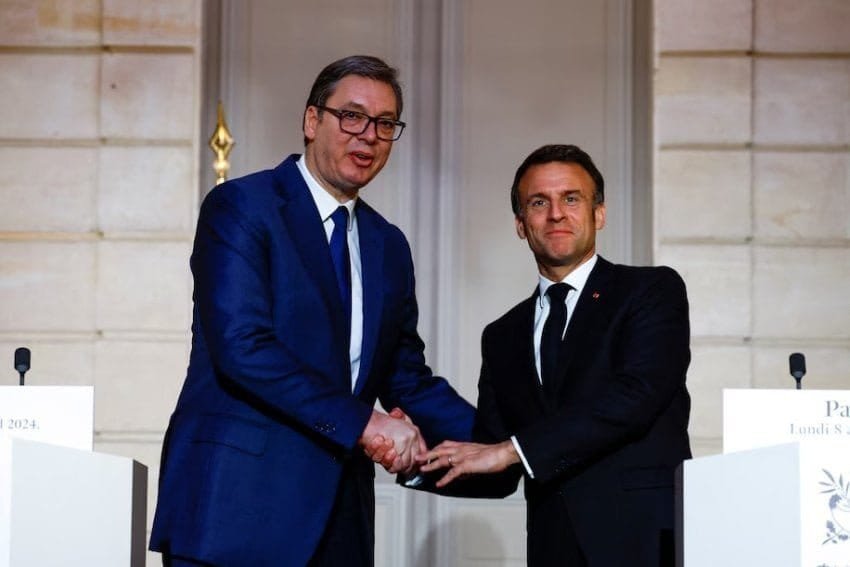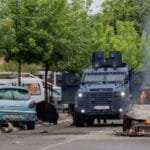Serbia is close to signing an agreement to purchase 12 French Rafale fighter jets, announced Serbian President on Tuesday, in what would mark a departure from its traditional military supplier Russia, writes The Washington Post, as reported by Bota sot.
President Aleksandar Vučić spoke during his two-day visit to Paris and talks with French President Emmanuel Macron as well as French defense officials, including Rafale manufacturer Dassault Aviation.
Vučić said he had a very good conversation with Macron on Monday night, which lasted more than three hours, and that they “reached concrete agreements regarding the purchase of Rafale fighter jets”.
He said the contracts will be signed in the next two months in the presence of Macron, adding that the purchase of sophisticated aircraft will significantly expand military cooperation and other ties between the two states.
Financial details of the potential agreement have not been disclosed, but Serbian pro-government media estimated it at around 3 billion euros ($3.2 billion) for the entire package.
Serbia has been considering the purchase of new Rafale jets for more than two years, after neighboring Balkan rival Croatia bought 12 used fighter jets of the same type for about 1 billion euros.
The possible purchase of Rafale aircraft would allow Serbia to modernize its air force, which is mainly composed of Soviet-made MiG-29 fighter jets, as well as old Yugoslav fighter jets.
Russia has been a traditional supplier of military aircraft, including fighter helicopters, to Serbia, which has refused to join international sanctions against Moscow for its invasion of Ukraine.
Serbia’s rapid rearmament has worried some of its neighbors following the bloody breakup of former Yugoslavia in the 1990s. Serbia, a candidate for European Union membership, is almost entirely surrounded by NATO member states.
Critics of Serbia’s Western arms purchases say the sale of sophisticated French aircraft could encourage Vučić to potentially militarily intervene in neighboring Kosovo, a former Serbian province that declared independence in 2008, which Serbia does not recognize. The Serbian populist leader has made such veiled threats in recent months.
During his talks with Macron in Paris, they also discussed the simmering tensions in Kosovo as well as cooperation in the field of nuclear technology and the possible construction of a nuclear power plant in Serbia.







